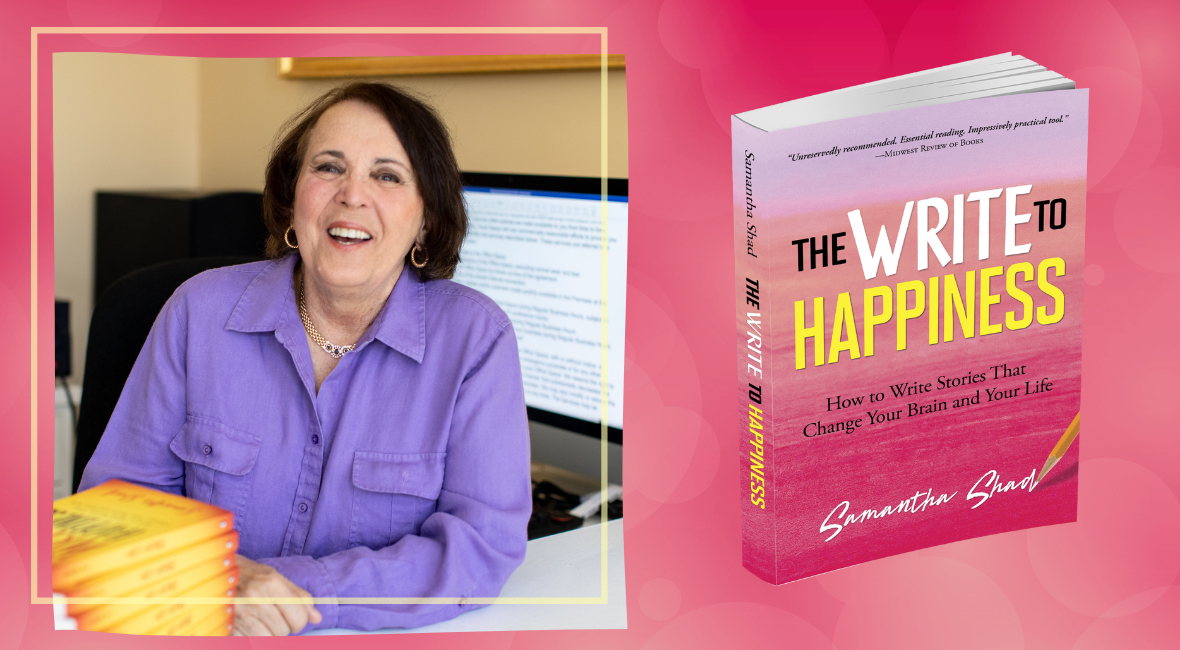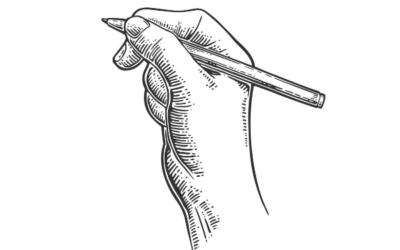
The Write to Happiness is a miraculous tool that helps writers change their lives in the direction they choose. Within The Write to Happiness, Samantha Shad teaches self-help enthusiasts and writers how to create great stories and how writing can change their life for the better, whether it is the main focal point or not. Samantha shows writers how the process for positively changing the brain and the process for writing a great story is the same.
The Write to Happiness teaches story structure from the professionals to help writers understand the power of storytelling while also teaching them:
- why gossiping is central to our existence
- why your brain remembers stories and forgets facts
- how to write stories that engage your readers and yourself
- how forgetting gives meaning
- why memory is a myth
- what happens in your brain when you read and when you write
NOW YOU CAN SIMULTANEOUSLY CHANGE YOUR LIFE AND TELL YOUR STORY!
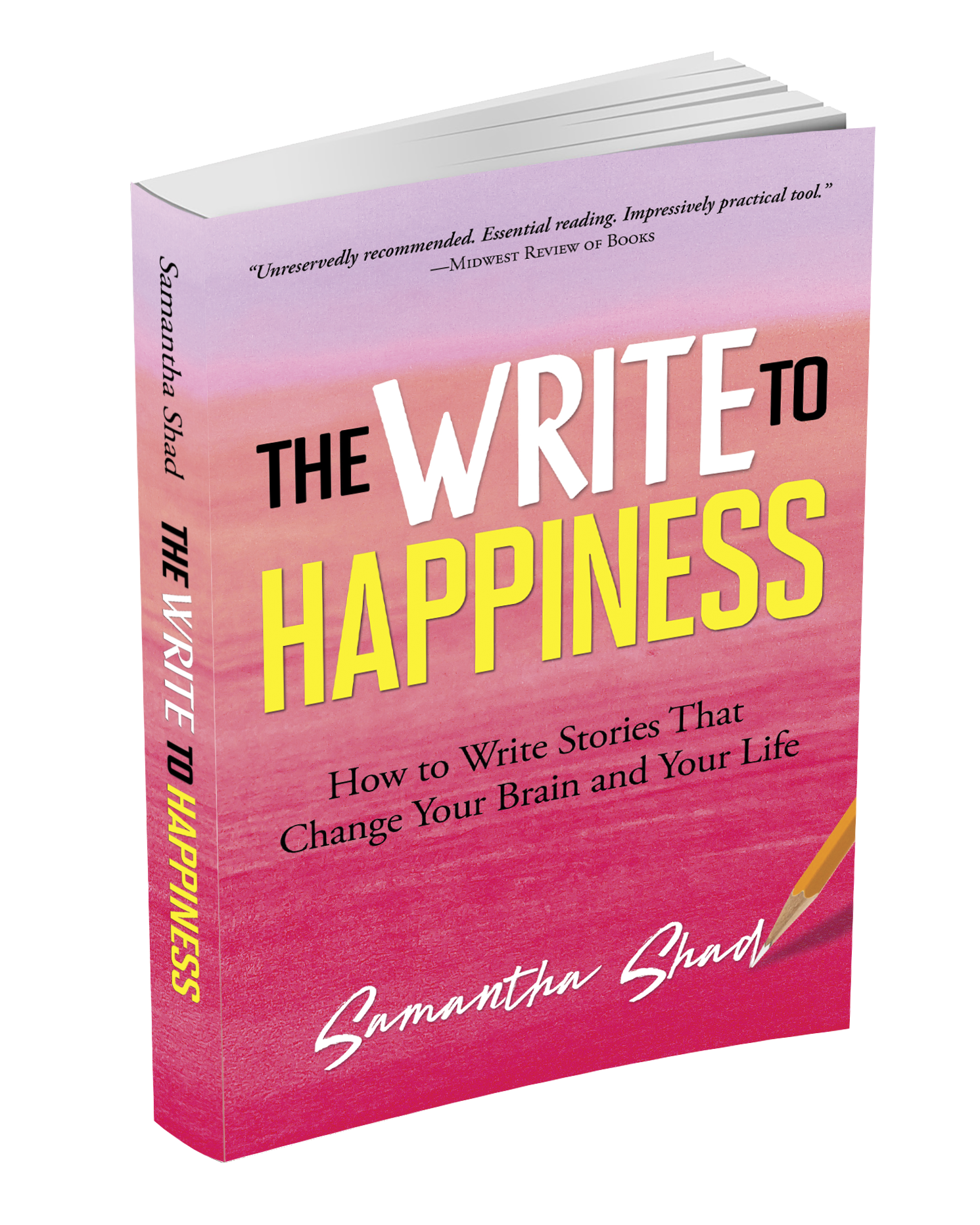
Best Book in the Category
of Writing Creativity
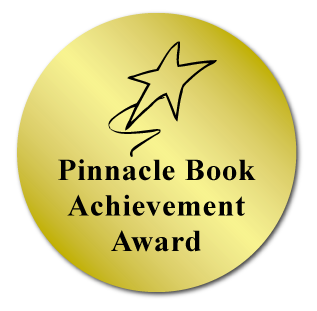
2020 IAN Book of the Year Awards
Category of Self-Help / How-To

Finalist in the Category
of Adult Non-Fiction


Best Book in the Category
of Writing Creativity

2020 IAN Book of the Year Awards
Category of Self-Help / How-To

What People Are Saying About The Book!
“…does a wonderful job helping the writer become their most effective storytelling self.”
“There are so many ‘how to write’ books on the market that a wannabe writer might wonder at the need for yet another, let alone how to make a choice between them. Wonder no longer, because The Write to Happiness is a standout on the subject. It is distinctive because of its ability to cover the basics of crafting ideas into plot, character, setting, and premise into a wider-ranging analysis of what writing ultimately teaches both reader and author.”
This cogent guide to storytelling also advocates the use of writing as a tool to improve one’s life through the written word. Shad identifies the “rules of writing to happiness” in straightforward steps, with an emphasis on using creative writing to view life’s problems through the lens of narrative. The first section is an excellent resource for aspiring and novice writers, with chapters that explore storytelling, developing characters, and plotting. Shad effortlessly expands and builds upon each element of writing as the book progresses. Having addressed the “how” of writing, the second section explores the “why.” Shad delves deeper into explaining her belief that one can rewire the brain through expressive writing, thus writing oneself to happiness.
The detailed chapters on the basics of writing will appeal to novice writers just beginning to explore the craft. Shad begins at the very beginning, discussing where ideas come from, how to develop a protagonist and antagonist, and how to structure a plot. Her style is engaging and entertaining while staying highly informative and providing firm guidance: “There are no awards for having the most characters, subplots, and storylines. Aim to go deep, not wide.” Shad encourages the reader to jump ahead in certain areas of the book to try their hand at a particular exercise. This will go over well with readers who are hands-on learners and with writers already well-versed in the basics.
This guide caters to writers in the broad sense of the word, providing useful analysis for professionals, as well as for people who journal and write recreationally. Novices can rely on the wealth of information presented as a learning tool, and seasoned authors can peruse the work as a refresher course or learn more about writing and the brain. The writing exercises and worksheets are relevant to all skill levels. Readers with interest in creative writing or journaling will find this tool well worth investigating.
Write Through The Crisis: Make Good Use of Bad Times
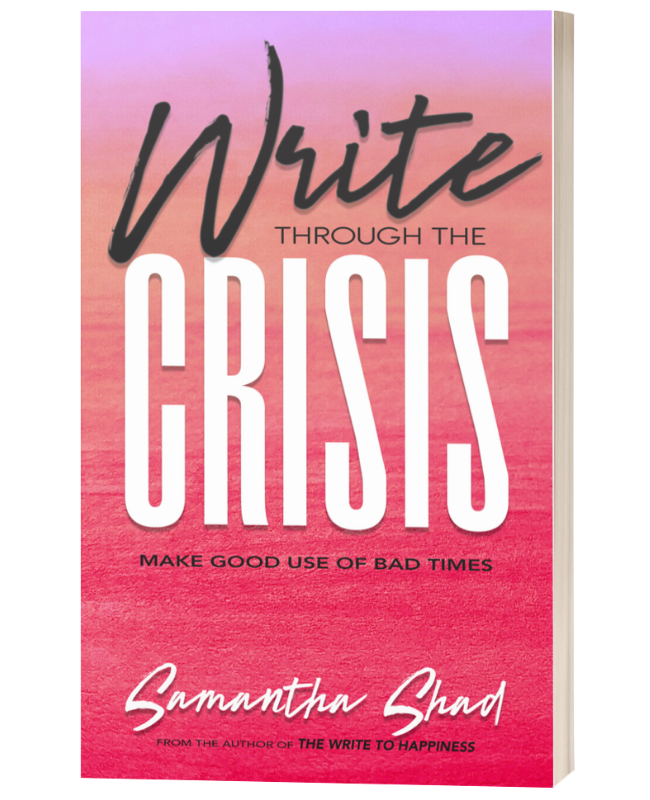
The stay-at-home survival guide for writers and non-writers alike.
Even sheltered-in-place at home, you can use writing to rebuild your peace of mind. Samantha Shad, author of The Write to Happiness, shows you how to increase your resilience, shore up your inner self and enjoy yourself doing it in WRITE THROUGH THE CRISIS.
Samantha prepared this manual to show her readers how to use journaling, expressive writing, storytelling, and active gratitude to center themselves amid the storm. You don’t have to BE a writer to write through the crisis; this short book of big answers promises that all you need is a keyboard or a blank notebook to re-center yourself as hard winds blow.

Samantha and Bozie
Samantha Shad
Samantha Shad is the author of The Write to Happiness (Morgan James, 2020) and Write Through the Crisis (Axillar, 2020), and wrote the screenplay for Class Action, the acclaimed Gene Hackman film.
She has written screenplays for film and television, practiced as an entertainment attorney, served in key leadership positions for major writers organizations, and taught writing at several colleges.
Her work as a film, television movie, and television series script doctor includes the feature films Mercy and G.I. Jane, and L.A. Law, the Emmy Award-winning TV drama series.
As a writing consultant, she works with screenwriters, novelists, and non-fiction writers privately and in writing workshops. She works with clients using The Write To Happiness as part of their journey to a happier life.
CHECK OUT MORE ON THE BLOG!
Write Through The Crisis
Write Through The CrisisDISASTER? PANDEMIC? CRISIS? THE IMPORTANCE OF THE RIGHT WORDby Samantha Shad I had a workshop scheduled at Duke University during the week when the coronavirus turned into covid19 and the world went from interested to panicked. The college...
The Write To Happiness and the Eternal Question: What Should I Write?
The Eternal Question: What Should I Write?How can you find the story you are supposed to write? The most important truth to carry with you as you journey forth to find your next story is: it doesn’t matter how you find your next story. Writing a story that can change...
The Write To Happiness: What Is A Story?
The Write to Happiness: What is a Story?The basic unit of writing to happiness is the fictional story. A story is a specific unit. It has a beginning, middle, and end. It has a protagonist and an antagonist. It has a theme, though usually you can wait it out and...

